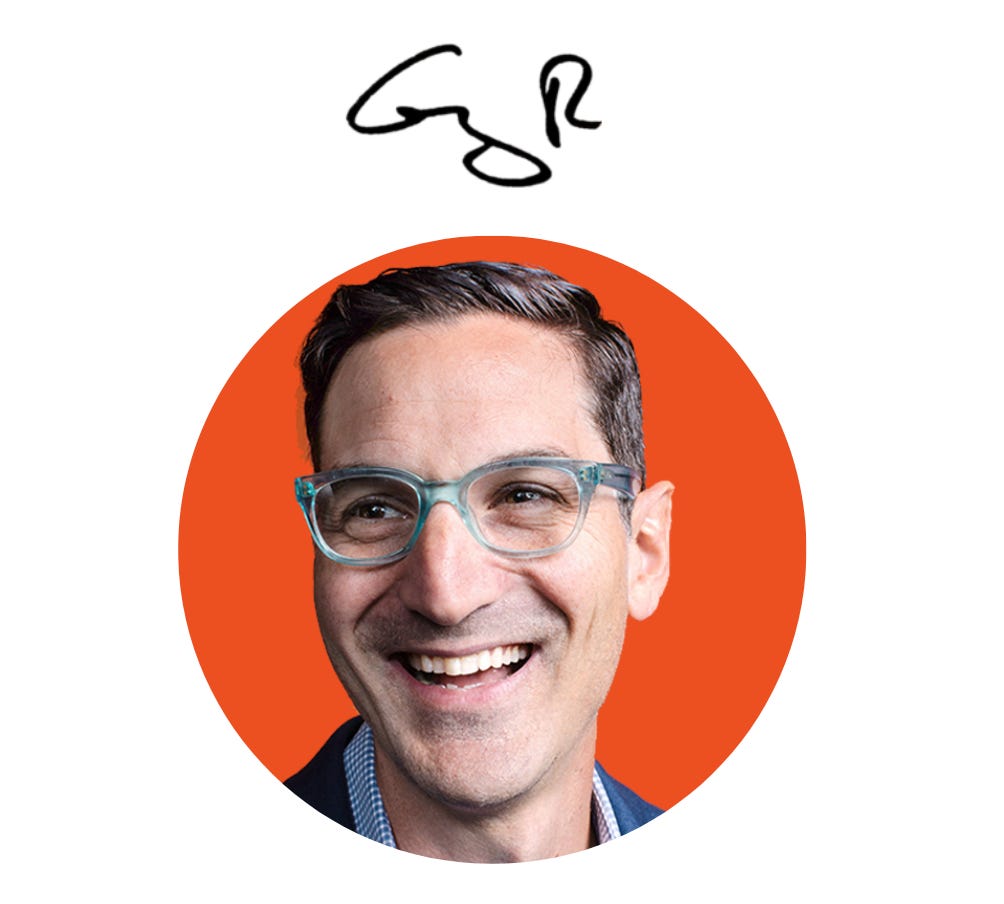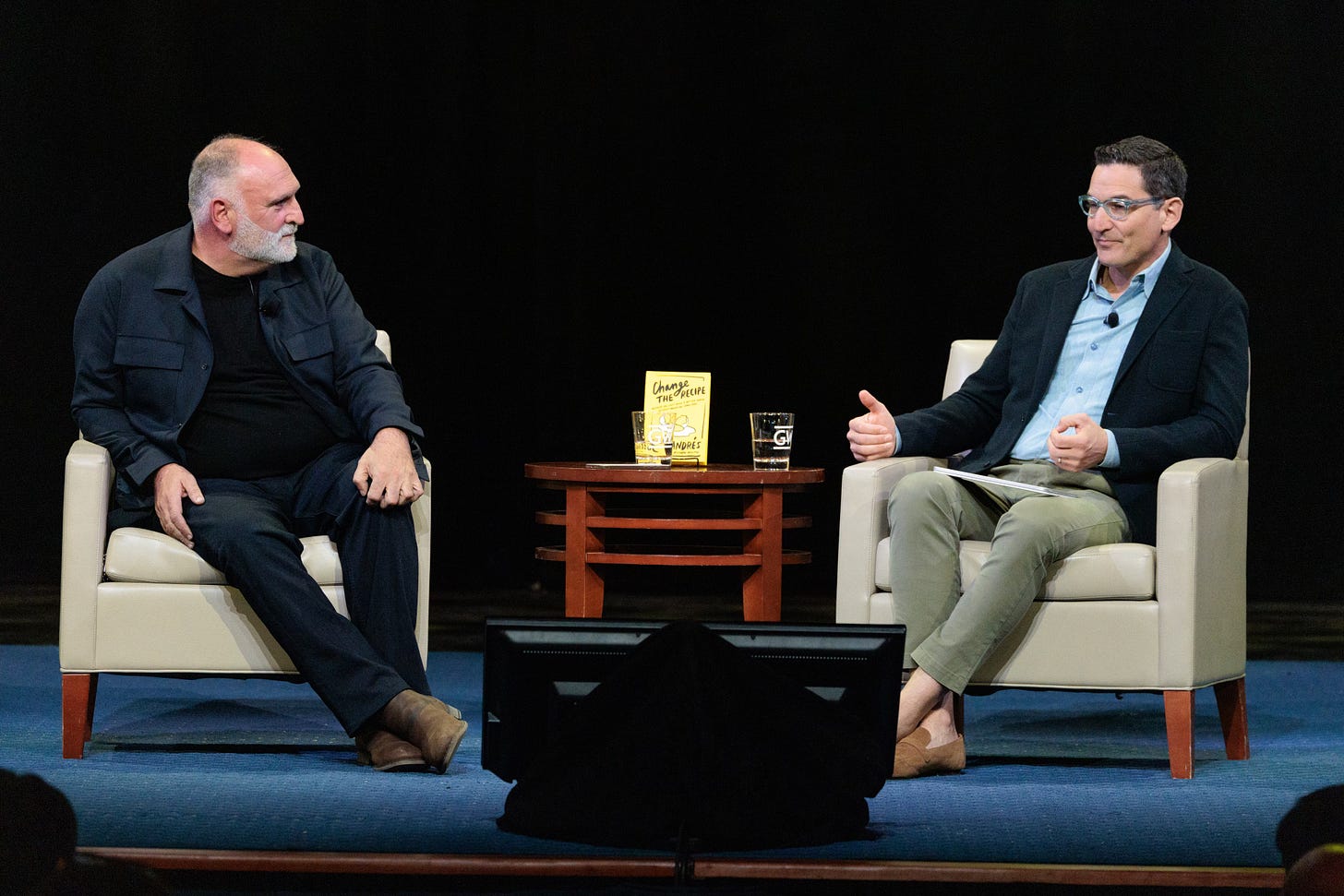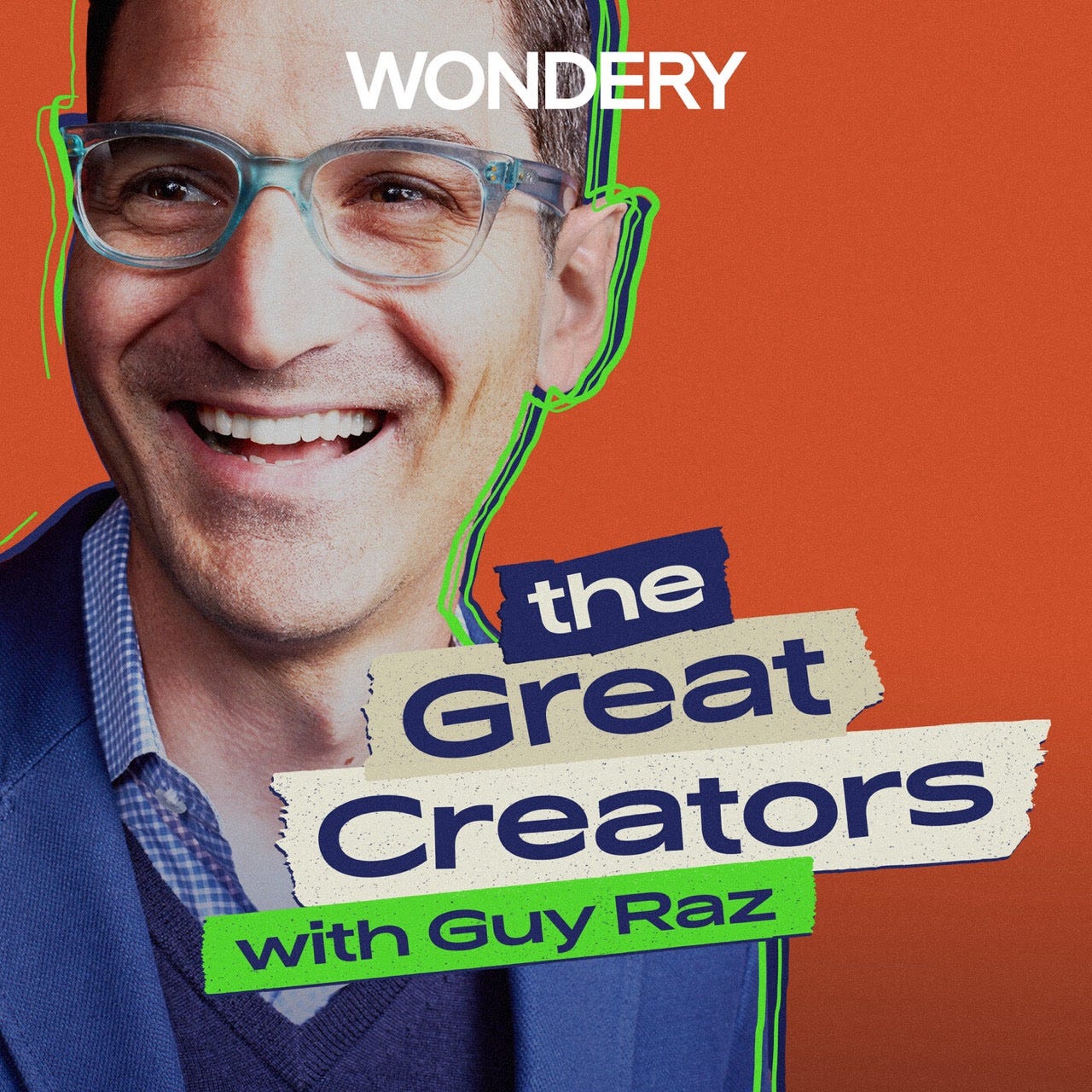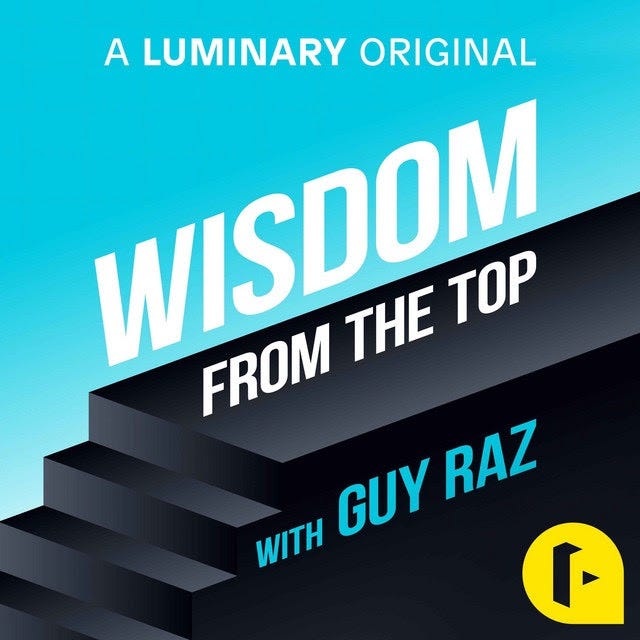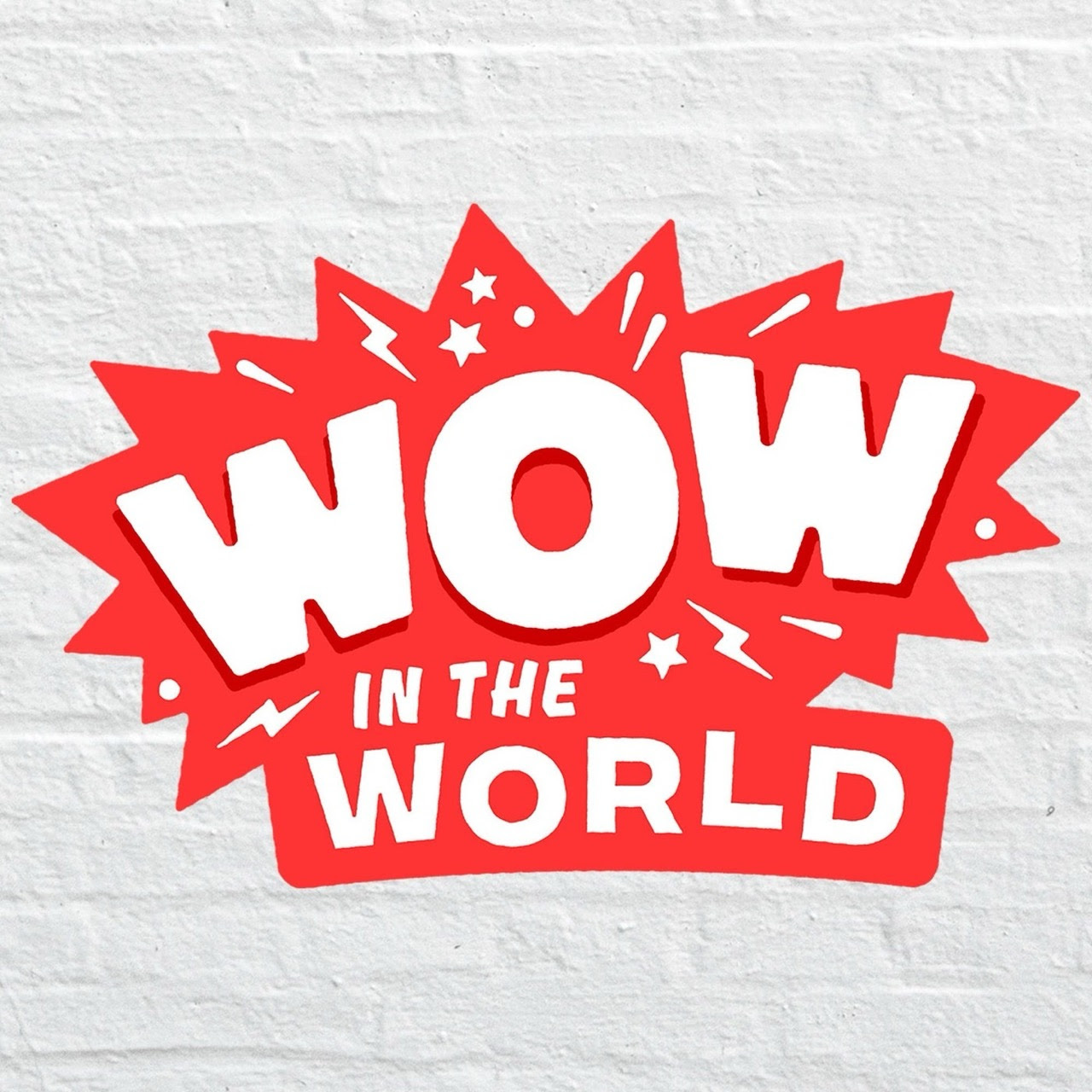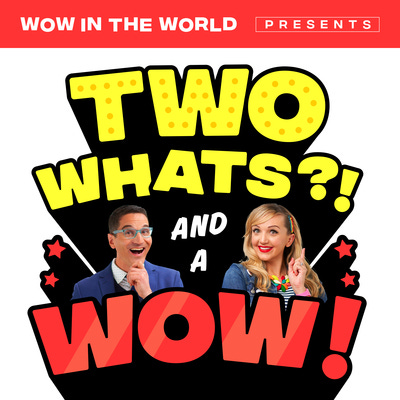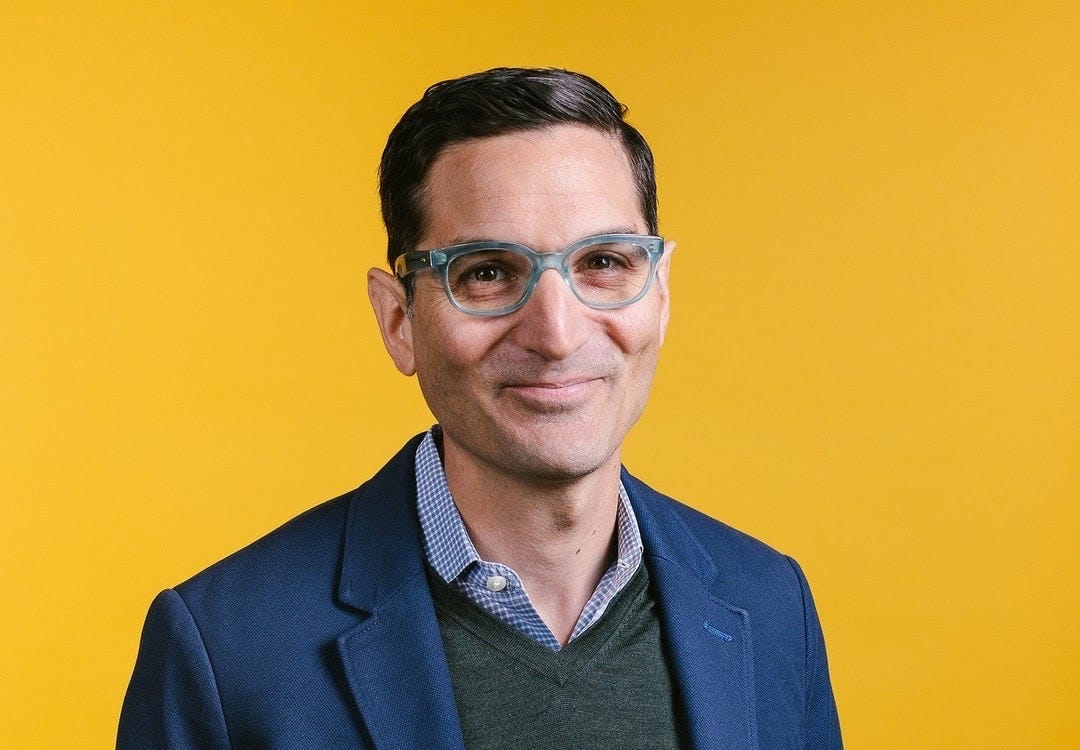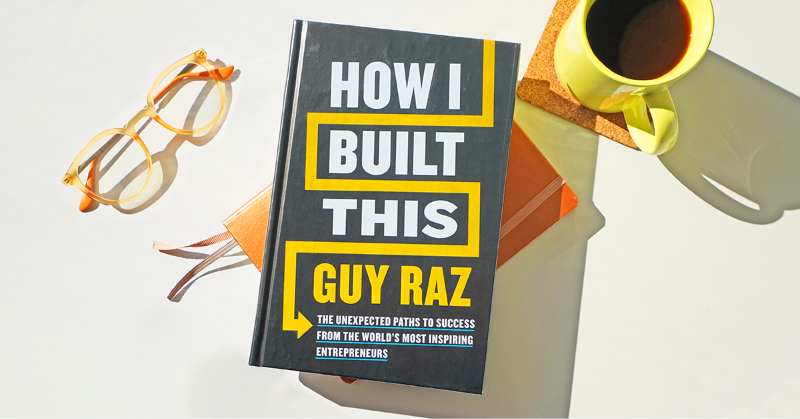There’s this idea – spoken or unspoken – that if you’re going to start a business, you need to do it young.
You know the narrative: the 22-year-old tech genius in a hoodie launching a billion-dollar startup from their dorm room eating ramen and greasy pizza. (And sure, we’ve told a few of these stories on HIBT in the past, I’ll admit.)
But what I’ve found, again and again, is that age is often an advantage.
Age isn’t a barrier. It’s an edge.
I’ve said this before and I will keep hammering on about this.
According to the Kauffman Foundation, the average successful founder is 45. Experience almost ALWAYS wins.
Arianna Huffington launched Huffington Post at 54 and sold it for $315 million at age 61. Bob Moore started Bob’s Red Mill at 57;
Bernie Marcus co-founded Home Depot at 50.
Ray Kroc was 52 (and a failed salesman) when he first partnered with the McDonald’s brothers and started to build what would become an empire.
This week’s guest, Danny Winer, co-founder of Hexclad, didn’t start his company until he was almost 50. Before that, he had worked as an actor, tried his hand at a few business ventures, and spent years trying to figure out what was next.
When he finally decided to launch Hexclad, he went all in. Cashed out his 401K. Emptied his savings. He risked nearly everything to give this idea a shot.
Now, would I recommend that level of risk to everyone? Probably not.
But I would recommend not letting age get in the way of starting something.
Ever.
I’ve always had a bit of a bias toward interviewing founders with a little more life under their belt. People who’ve lived through different chapters, weathered a few storms, and have a clearer sense of what they want to build and why.
One of my favorite examples of this is Cynthia Tice, the founder of Lily’s Sweets. She was 57 when she launched the brand. It wasn’t an overnight success. But it was the culmination of years of experience, intuition, and persistence.
She built Lily’s from the ground up and eventually sold it for $425 million.
So if you’ve ever felt like it’s “too late” to start something new… I’d challenge that.
You can launch a business at 25.
You can launch a business at 55.
You can launch a business at 75.
The timing doesn’t matter nearly as much as the decision to start.
So I’m curious:
If you’ve launched something later in life: how did it change your perspective?
And if you’ve been thinking about starting something… what’s holding you back?
Let’s me know in the comments or send me an email!
Have a great week.
—Guy
Live! with Chef Jose Andres in Washington DC!
Last week, I sat down with my friend, Chef Jose Andres, to talk about his new book Change the Recipe. In the book, Jose talks about the events in his life that taught him how to live life.
We had a blast at Lisner Auditorium in Washington DC. The entire conversation will be broadcast on C-SPAN and I’ll be sure to pass along the link when its live.
My New Series With Square Is Live!
This week, I launched a video series with Square called The Way Up. I am so proud of this project. Square did an incredible job producing these episodes and you will meet some incredible small business owners over the next few months.
Check out the landing page and be sure to watch the first episode just released about an amazing business called The Sports Bra. It’s a bar in Portland created by an awesome entrepreneur named Jenny Nguyen—a former college basketball player.
She was tired of going to sports bars and NEVER seeing women’s sports on the TV’s. So, she started her own!
It’s been a huge success in Portland and Jenny is now franchising the concept across the US. You’ll love this story:
On the Podcasts This Week!
How Hexclad Reinvented the Frying Pan
Danny Winer didn’t grow up dreaming of cookware. In fact, he wanted to be an actor.
But after years of auditions, a serious car accident, and a string of dead-end jobs, he found himself working a sales booth at a cookware trade show…just to pay the bills.
But that side job changed everything.
Years later, after a failed startup and one surprising product discovery at a trade show, Danny took a huge bet: he launched a premium non-stick pan (without VC backing, salary, or safety net). This was the beginning of Hexclad.
Most investors said no. Retailers said it would never sell online.
But Danny and his co-founder kept going. And today, Hexclad does over $500 million in annual sales. And you’ve probably even seen their cookware in a famous chef’s kitchen.
Tune in to hear how Danny went from bootstrapping cookware in a backyard to building one of the fastest-growing kitchen brands in the world.
HIBT Advice Line: Follow the Data
This week on the Advice Line, I’m joined by Luis von Ahn, co-founder of Duolingo. Luis helped turn a simple language-learning app into a $13B company. And today, he’s sharing why great products come from observing data, not just listening to feedback.
First up, Steph: Should I grow beyond my roots or stay focused?
Steph runs Good Things Vending, a network of vending machines filled with art and curiosities. She’s debating whether to grow beyond Chicago or double down in her network. Our advice? Raise prices, charge for placements, while not being afraid to explore expansion.
Next, Blair: How do I pick the right next product for my accessories brand?
Blair’s company Bair makes premium accessories for Apple products. But he’s torn about what to build next. We encourage him to focus on what’s working now, test with real users, and let data guide the roadmap.
Finally, Stephanie: How do I afford to hire without draining cash?
Stephanie runs Naturspire, a plant-based design firm nearing $1M in revenue. She’s busy, but hesitant to hire. Luis reminds her that pricing is the key to scale.
Luis leaves us with one final reminder: Watch what your customers do—not just what they say. That’s where the truth is. Tune in for more!
If you would like to be featured on an upcoming episode, call and leave a 1-minute message at 1-800-433-1298 or send a voice memo to hibt@id.wondery.com
Alan Alda on the Art of Staying in the Game
Alan Alda has spent over six decades making people laugh, cry, and think… sometimes all at once. But even at 87 (at the time of this recording), he says he’s still chasing creative challenges he’s not sure he can pull off.
In this episode, Alan reflects on the moments that shaped him: an unscripted hug that unlocked his character on MASH* and the ensemble trust that made the show legendary. He also reflects on why improv isn’t about being clever, it’s about connection.
He also shares what it’s like to keep working while navigating Parkinson’s disease, and why he believes the key to creative longevity isn’t talent…it’s curiosity.
Watch it on YouTube:
Mark King: Reinvention at Every Turn (Taco Bell)
Mark King doesn’t just lead – he reinvents.
At TaylorMade, he turned a legacy golf brand into the most profitable company in its category. At Adidas, he reignited a stagnant North American division with bold moves.
And as CEO of Taco Bell, Mark brought that same playbook to fast food: move quickly, think big, and don’t be afraid to spend when the idea is right.
His story is a powerful example of how great leadership isn’t bound by industry… It's driven by vision, speed, and the courage to shake things up.
Science Podcasts for Kids!
The City That Soaked Itself!
It’s been raining for seven days straight, the streets are flooding, and Grandma G-Force is giving wild weather interviews in a unitard?! Something’s gotta give!
In this week’s Wow in the World, me and Mindy wade through the science of Sponge Cities—urban areas built to soak up water like a sponge!
With too much pavement and not enough nature, rainwater has nowhere to go… and that’s where this WOW-worthy idea comes in.
From green roofs to rain barrels to Super Sponge Man (ahem, Dennis), the crew discovers how cities can fight floods with nature, not against it.
Purr-fectly Amazing Facts!
Did you know that ancient Egyptians dressed their cats in jewelry?
Or that cats even have whiskers on their front legs to help them sense the world around them?
Curl up with this week’s episode of Two What’s And A Wow to find out even more about our favorite feline friends!
From the Archives!
reCAPTCHA and Duolingo: Luis von Ahn
In 2000, while pursuing his PhD in computer science, Luis von Ahn stumbled upon a peculiar problem: bots were flooding Yahoo with fake email sign-ups.
His solution? CAPTCHA—the distorted text that websites use to separate humans from bots. It became an internet staple, but Luis gave the idea away for free. Years later, he turned that same concept into something far more ambitious: reCAPTCHA, which not only verified users but helped digitize books.
But his biggest leap came with Duolingo, a free language-learning app built on the idea of crowdsourcing and accessibility. With gamified lessons and a mission to make education free for everyone, Duolingo has since grown into a global platform used by hundreds of millions.
Angie's BOOMCHICKAPOP: Angie & Dan Bastian
When Angie and Dan Bastian started popping kettle corn outside grocery stores in Minnesota, it wasn’t about building a business empire, it was about saving for their kids’ college fund.
Armed with a $10,000 investment and a kettle corn kit they found online, the couple set up shop at Vikings games and local supermarkets, slowly turning heads with their sweet-and-salty snacks.
But as demand grew, so did their ambition. They landed deals with Trader Joe’s, Target, and Costco, and rebranded their business with a name as bold as their popcorn: BOOMCHICKAPOP.
By 2017, what started as a weekend side hustle had become one of the fastest-growing snack brands in the country.
See you next time!
What do you want more or less of?
Just send a tweet to @guyraz or a message on IG to @guy.raz or LinkedIn and put #GuyRazNewsletter at the end so I can find it.


